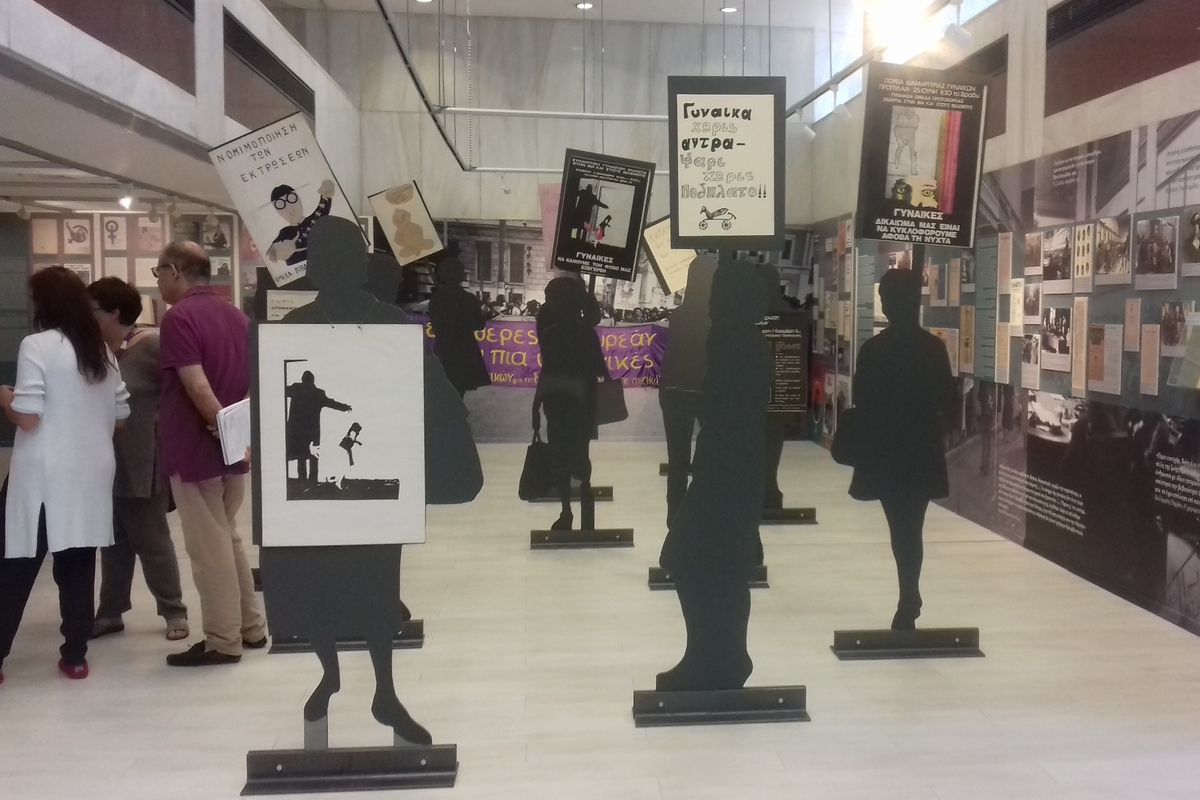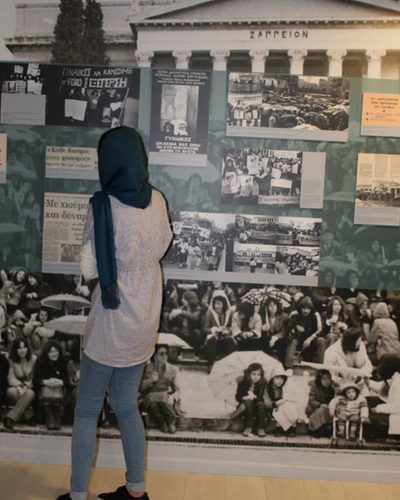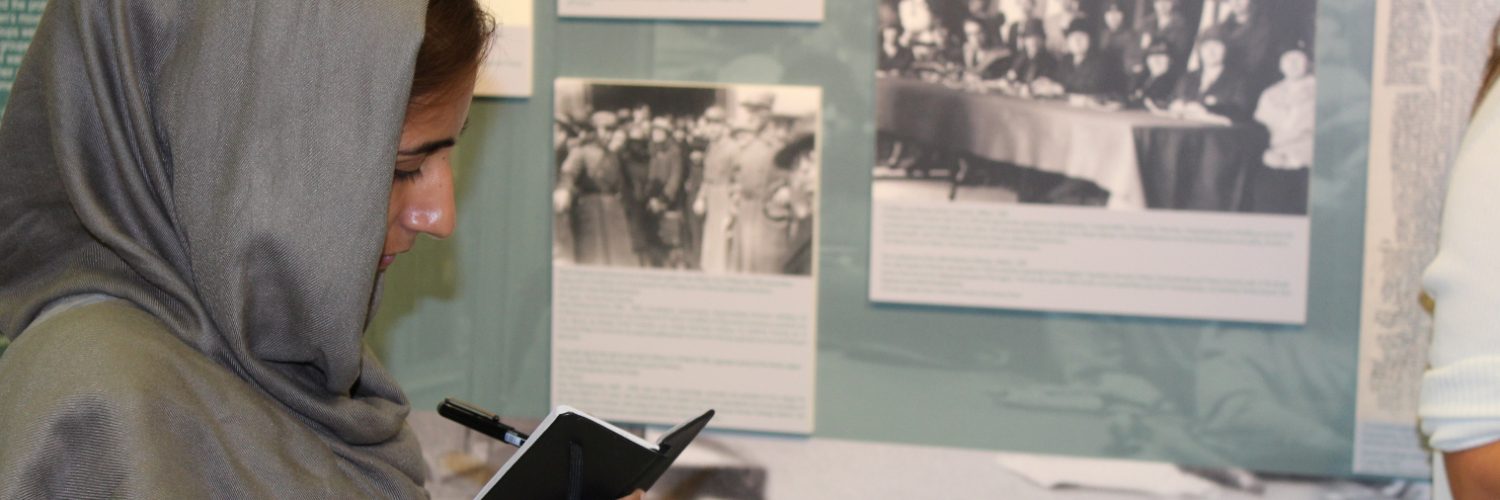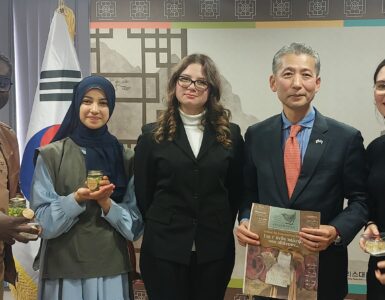Report from the Exhibition on Feminism at the Hellenic Parliament Foundation
On Tuesday 18th of July 2017, the teenage group “Migratory Birds” visited the Hellenic Parliament Foundation and saw the exhibition entitled “Feminism and Transition to Democracy, 1974-1990: Ideas, Collectives, Claims”. Anna Enepekidou, who is responsible for the exhibition, gave us all the necessary information.
Women are delicate but not weak. The slightest emotional blow may wound them, but they are able to stand up to the terrible storms of life. Ignore the weakness in their voice or body. If they want to take on big responsibilities, they are more than able to see them through.
Violence against women is the most shameful violation of human rights. This includes physical and corporal violence, violence against wives, psychological and verbal abuse, such as humiliating one’s wife, lack of respect, ignoring what women want as individuals and not considering their physical needs. There is also social abuse, such as forbidding women to work or study, not paying them any attention, taking advantage of their patience as they suffer stoically and in silence. And there is financial abuse, for example, when a man refuses to pay a woman’s expenses. Finally, there is immoral harassment.
One hundred years ago in Greece, girls didn’t have the right to go to university, but they were active in their homes. Apart from sewing and knitting, they wrote magazine articles. We are talking about girls from wealthy families who were tutored at home. Of course, it wasn’t forbidden to write articles. Nevertheless, difficulties did exist. Sixty years after the first universities opened in Greece, no woman had the right to study in them. It wasn’t till 1890 that the first woman was accepted at university. In those days, only women from wealthy families wrote articles and went to university. Women from lower classes did housework and could only go to Sunday school. The presence of women in universities and the successful completion of their studies were followed by demands in the workplace. Women were not entitled to vote before World War I, so they organized themselves into groups to fight for voting rights. It wasn’t till 1956 that women finally obtained the right to be heard. For the past 70 years, Greek women have been free to take part in every kind of activity. Naturally, the majority of men were against the presence of women at the ballot box, but women fought for that right.

Between 1967 and 1974, during the dictatorship in Greece, all activities were frozen, including the circulation of newspapers. The dictatorship came to an end in 1974. Women had petitioned for the right to go to school for over a hundred years, but as time went on, they began to demand further rights. One of the rights granted in 1975, was the law on gender equality. The first rights they petitioned for had to do with the family. Previously it was quite common for women to be beaten, so women insisted that men be denied this right. With the fall of the dictatorship and the transition to democracy, women were obliged to join the labor market. Even so, there were women who did not agree with this freedom. Finally, however, women acquired the right to go to university, to become ministers and MPs, while their rights were gradually enshrined into law. Naturally, in order for them to acquire all those rights, women had to take part in protests without fear. They entered parliament and acquired equal rights.
At the end of our meeting, each member of the “Migratory Birds” team wrote their views on the rights of women on small pieces of paper that were placed on the walls of the exhibition.
The message to all women is:
I ask all women of the world to fight for their rights and never submit to oppression.










Add comment